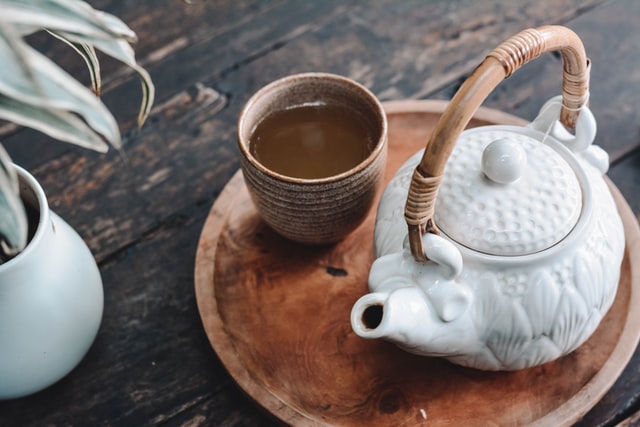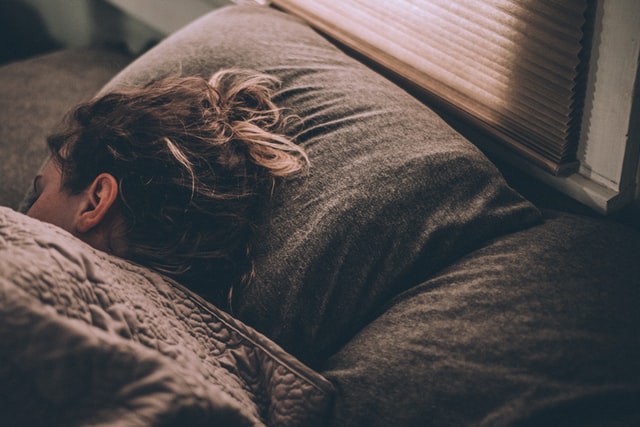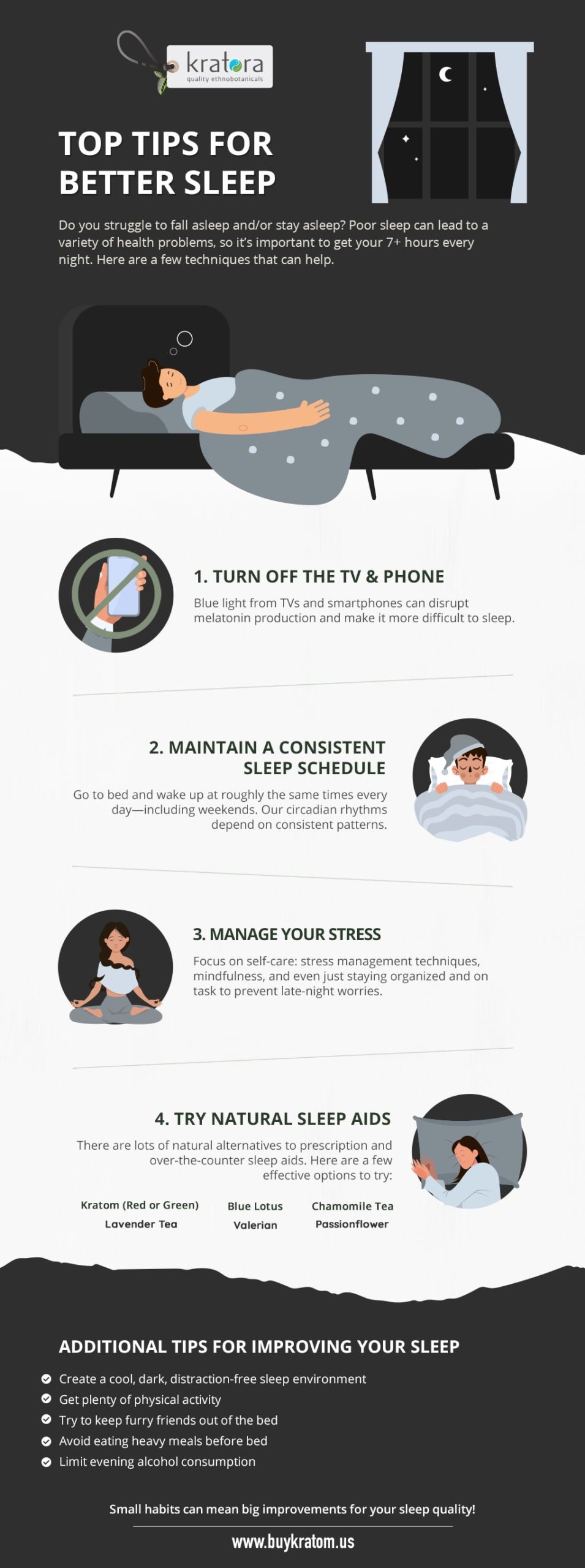More than a third of U.S. adults don’t get enough sleep. A short sleep duration is defined as sleeping less than 7 hours in a 24-hour period, and insufficient sleep is associated with a number of serious and chronic conditions including depression, chronic kidney disease, stroke, and heart attack. We can all benefit from more sleep, but it isn’t always easy amid the rigors and stresses of everyday life. Still, there is hope. If you’re struggling to achieve adequate rest, consider the following tips for better sleep.
1. Turn Off the TV & Phone
This is one of the most common tips for better sleep, but it’s also one of the most important. Numerous studies have found that electronic devices like phones and TVs can disrupt sleep. There are several possible reasons for this, including mental stimulation and the simple fact that visual entertainment causes us to stay up later.
However, there’s another scientific reason that shouldn’t be overlooked. Visual electronic devices like phones and TVs emit blue light, and blue light has been shown to impede melatonin production. Melatonin is the body’s natural sleep hormone, and it’s essential for regulating healthy sleep patterns. So if you struggle with chronic insomnia or poor sleep quality, try putting the phone away and turning off the TV an hour before bed.
2. Keep Your Sleep Schedule Consistent
This is one of the most basic but overlooked ways to improve sleep. Your body’s circadian rhythms depend on consistency and patterns. If you constantly wake up and fall asleep at different times, you’re going to have extreme difficulty with regulating your body’s sleep-wake cycle.
So if you wake up at 6 a.m. on Monday through Friday, don’t fall into the all-too-common trap of sleeping in until 9 a.m. on Saturday and Sunday. Try to keep your cycle relatively the same every day, within a window of one hour or less. That’s not to say that you shouldn’t get extra rest when you need it, but it does mean that you should strive for general consistency.
On a related note, try to limit naps as well. Napping can interfere with your ability to fall asleep at night. So if you do need to nap, keep it short (less than one hour), and try to take your nap early in the day if possible. Don’t oversleep in the daylight hours unless your career necessitates it.
3. Manage Your Stress
Poor sleep is often anxiety-related. So if you want tips for better sleep, your anxiety is often the best place to start. Stress management is critical, and this can mean different things for different people. For some, it might be as simple as ensuring that all of your work is done, all of your tasks are organized, and all of your simple day-to-day conflicts are resolved before you go to bed (e.g. don’t go to bed angry). For others, it might require mindfulness meditation or prayer. For some, it might be a combination of diet, exercise, and ongoing treatment with a mental health professional.
Whatever you require for self-care, don’t neglect it. It will impact not just your sleep but every aspect of your life.
4. Try Kratom for Natural Sleep Support
Some people are understandably uneasy about taking prescription and even over-the-counter sleep aids. That’s understandable. These drugs can be habit-forming, and some have been known to have alarming side effects like confusion, aggression, and even sleep-driving. And who hasn’t experienced the painful “melatonin hangover” at one time or another? Plus, if you’re researching ways to improve sleep, you’ve probably already tried these remedies.
The good news is that there are a number of natural botanicals that may help promote sleep support without the intense side effects. One example is kratom. Kratom is a tree that grows in southeast Asia, in countries like Malaysia, Indonesia, and Thailand. For centuries, people in these regions have collected the leaves from this tropical tree and used them for ceremonial purposes and general wellness. While the leaves have traditionally been smoked and mixed into teas, today they’re commonly ground into a fine powder and sold in both kratom powder and kratom capsule form.
Though some types of kratom are more stimulating than relaxing, certain kratom strains—especially the red-vein and certain green-vein varieties—have been shown to naturally calm the mind to help support sleep. Try varieties like Ultra-Enhanced Indo (UEI) Kratom Capsules and Bali Kratom Powder if you’re looking for tips for better sleep.

5. Consider Other Herbal Preparations
Certain herbs may also help to promote sleep. For instance, if you’ve been researching tips for better sleep, you’ve probably heard about the benefits of drinking chamomile tea at the end of the day. Studies show that a hot cup of chamomile tea may indeed help to promote sleep, as the chamomile plant has natural sedative effects. Lavender tea is another good option, as it’s rich in linalool, a terpene with relaxing properties often found in essential oils. Valerian and passionflower are other great options for anyone who enjoys a good cup of tea.
If teas aren’t your thing or you’re looking for a more versatile option, consider Blue Lotus Powder. The blue lotus flower was prized in ancient Egypt and the Mayan Empire, and it has long been used for all-natural sleep support.
Other Tips for Better Sleep
Maeng Da Kratom Powder
From $12.99
Shop Now
This product has multiple variants. The options may be chosen on the product page
Bali Kratom Powder
From $10.99
Shop Now
This product has multiple variants. The options may be chosen on the product page
White Vein Borneo Kratom
From $10.99
Shop Now
This product has multiple variants. The options may be chosen on the product page
Thai Red Vein Kratom
From $10.99
Shop Now
This product has multiple variants. The options may be chosen on the product page
There are plenty of other ways to improve sleep. Get regular physical activity, build a sleep environment that’s conducive to rest (e.g. dark, quiet, and cool), avoid heavy eating before bedtime, and limit alcohol consumption—just to name a few examples.
But the most important tip for better sleep is this: Be consistent. Don’t just be consistent in your sleep schedule, but also in your self-care, in maintaining your sleep environment, in limiting screen time before bed. You might not notice a difference on the first, second, or third day, but before long you’ll be enjoying longer, more restful sleep consistently.
Want to learn more about kratom quality and value? Start here:
Why Buying Cheap Kratom Can Be Dangerous







